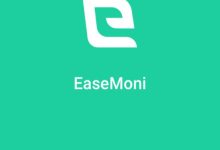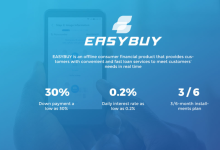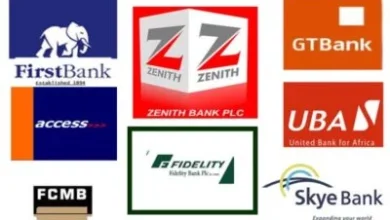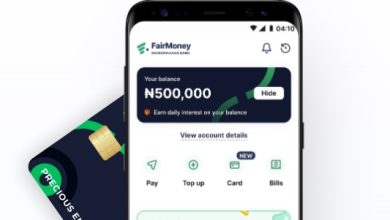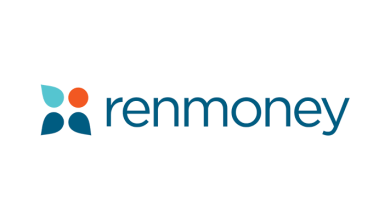How to get ₦50,000 to ₦5million business loan in Nigeria for your small or medium business
Are you a small or medium-sized business owner in Nigeria seeking funding to fuel growth? Access to capital is crucial for the success of SMEs in Nigeria, yet many struggle to secure the necessary funds. Fortunately, there are several lending programs available to support Nigerian SMEs in their expansion endeavors.
By conducting thorough research and careful planning, you can secure a loan ranging from ₦50,000 to ₦5 million to propel your business forward. This article will guide you through the steps to obtain such financing for your SME in Nigeria, ensuring you have the financial resources needed to thrive and expand. Whether it’s for working capital, equipment purchases, or other business needs, these funding options can be a lifeline for your growing business in Nigeria.
Eligibility Requirement for a Business Loan In Nigeria For Small or Medium Business
Before you can apply for a business loan in Nigeria, meeting specific eligibility criteria is vital, inorder secure consideration from financial institutions. Lenders aim to ensure they extend credit to reliable and trustworthy borrowers with a strong likelihood of repaying the loan. Here are key criteria that must be satisfied to qualify for a business loan:
Business Plan
A well-structured business plan is crucial for demonstrating your commitment to your business’s success and loan repayment. This plan should outline your business objectives, strategies, marketing plans, and financial projections. It offers lenders a comprehensive view of your business’s potential for growth and profitability, reassuring them that you have a sound strategy for repaying the loan.
Credit Score
Financial institutions evaluate your credit score to gauge your creditworthiness. A favorable credit score indicates a history of timely loan repayments, enhancing your loan eligibility. Conversely, a poor credit score may make it challenging to secure a business loan, as it suggests a higher risk of default. It’s crucial to maintain and improve your credit score by meeting your financial obligations punctually.
Business Registration
One fundamental requirement is having a registered business with the Corporate Affairs Commission (CAC) in Nigeria. This registration demonstrates that your business is a legitimate entity capable of entering into contracts and borrowing money. It establishes the legal foundation for your business operations and loan agreements.
Collateral
Depending on the lender and the loan amount, you may be required to offer collateral as security for the loan. Collateral is an asset that the lender can seize in the event of loan default. Common forms of collateral include property, vehicles, equipment, or other valuable assets. Collateral provides a safety net for lenders and may increase your chances of loan approval, especially for larger loan amounts.
Financial Records
Robust financial records are essential. These encompass your business bank account statements, profit and loss statements, balance sheets, and cash flow statements. These documents provide lenders with insights into your business’s financial health, illustrating its revenue, expenses, and overall financial stability. A strong financial track record can bolster your application by assuring lenders of your ability to manage loan repayments.
How to Get ₦50,000 to ₦5Million Business Loan in nigeria for your Small or Medium Business
Below is comprehensive information on how to obtain a business loan in Nigeria. To obtain a business loan in Nigeria, ranging from 50,000 to 5 million, you would need to follow a structured procedure designed specifically for your small or medium-sized business;
First of all, Begin by evaluating your business’s financial status and determining why you require the funds and how they’ll be utilized. This assessment should encompass cash flow, expenses, revenue projections, and upcoming investments. Outline your repayment strategy as well.
Secondly, Research lenders specializing in small business loans. Options include commercial banks, microfinance banks, development finance institutions, government agencies, and loan apps. Consider factors like interest rates, fees, eligibility criteria, and the lender’s reputation before choosing the best fit.
Gather the necessary documentation such as a business plan, financial statements, and tax returns to showcase your business’s financial stability and ability to repay. Complete the lender’s application form thoroughly and accurately. After submission, be prepared to provide additional information or documents as requested.
Lastly, Upon application, the lender will assess your request and decide whether to approve it. If approved, the lender will present the loan terms, including interest rates, repayment schedule, and associated fees. Carefully review these terms and seek clarification if needed. Don’t hesitate to negotiate for more favorable conditions if certain terms are unsatisfactory.
Loan Providers In Nigeria That Can Give Up To N50,000 To 5 Million Naira
There are variety of loan providers in Nigeria, dedicated to catering for the fifinancial needs of small and medium-sized businesses, offering loan amounts ranging from ₦50,000 to ₦5 million. These lenders recognize the importance of accessible funding options for entrepreneurs and startups. Here, we’ll delve into some notable loan providers in Nigeria that operate within this loan range:
CBN AGSMEIS Loan
The Central Bank of Nigeria (CBN) offers the AGSMEIS Loan, specifically tailored to support agricultural businesses and stimulate growth in this vital sector. This loan scheme provides affordable financing options with low-interest rates and flexible repayment terms, making it an attractive choice for agricultural entrepreneurs.
Bank of Industry (BOI)
The Bank of Industry, a government-owned financial institution, plays a crucial role in bolstering micro, small, and medium-sized enterprises (MSMEs) across various sectors. BOI’s extensive range of loan products is designed to cater to the specific needs of businesses, making it a versatile option for entrepreneurs seeking funding.
Development Bank of Nigeria (DBN)
DBN, a wholesale financial institution, was established to provide sustainable financing to MSMEs. Collaborating with participating financial institutions, DBN ensures accessible and affordable loans for eligible businesses. This partnership approach helps bridge the financing gap for many entrepreneurs.
See Also: I Need a Loan Of N50,000, N100,000 – 10 Apps That Can Give A Loan Of 50,000 Naira and 100,000 Naira
NIRSAL Microfinance Bank
NIRSAL Microfinance Bank is a licensed microfinance institution specializing in offering financial services to MSMEs. Their diverse portfolio of loan products is geared towards addressing the funding requirements of entrepreneurs, facilitating business growth, and fostering economic development.
Commercial Banks
Nigeria’s robust banking sector includes commercial giants such as Access Bank, First Bank, Guaranty Trust Bank (GTB), and United Bank for Africa (UBA). These banks offer a wide array of business loans to small and medium-sized enterprises. However, applicants must meet specific eligibility criteria and provide requisite documentation to secure a loan from these institutions.
GroFin
GroFin, an impact-driven SME financier operating in Nigeria and other countries, focuses on providing financial support to small and growing businesses. Their unique selling point lies in customized loan solutions and expertise that help entrepreneurs expand operations and achieve their business objectives while making a positive impact on society.
Bank of Industry (BOI)
BOI’s multifaceted approach to financing encompasses working capital loans, equipment loans, and project financing. This institution empowers businesses across sectors, contributing significantly to economic growth and job creation. Meeting their eligibility criteria and providing the necessary documentation is key to accessing BOI loans.
Bank of Agriculture (BOA)
BOA, another prominent development finance institution in Nigeria, extends its financial support primarily to businesses in the agricultural sector. Their loan offerings cover crop production, livestock production, and processing loans. To secure a loan from BOA, aspiring entrepreneurs must meet their specific eligibility requirements and submit the requisite documentation.
F.A.Q
How to get a huge loan?
To secure a substantial loan, a strong credit score, typically 740 or above is crucial. Additionally, a stable employment history and sufficient income to cover payments are essential. Lenders assess your income and existing debts. Demonstrating financial stability and responsibility enhances your chances of obtaining a significant loan.
How much loan can I get from microfinance bank?
Microfinance banks in Nigeria typically offer loans with a range of N15,000 to N5,000,000. The maximum loan maturity period for these loans is typically 18 months. If you require a larger loan size, it’s advisable to explore options available in the SME (Small and Medium-sized Enterprises) section of the bank or other financial institutions that specialize in larger business loans.
Which bank in Nigeria gives loan without interest?
TAJ Bank in Nigeria follows Sharia financial principles, abstaining from interest-based transactions. Similar to Jaiz Bank, TAJ operates on a profit-sharing model. They offer conventional banking services, including ATM access and online transactions, while upholding ethical and interest-free financial practices, making them a preferred choice for those seeking Sharia-compliant banking services.
Can I get a loan with my BVN?
Yes, you can use your Bank Verification Number (BVN) to confirm your identity when applying for a loan. Lenders rely on BVNs to verify your identity and ensure you are who you claim to be, enhancing security in the lending process. However, it’s important to note that a BVN alone cannot be used to access or transact in any bank account. It serves primarily as a means of identity verification and not for financial transactions.
What are the requirements to get a loan from microfinance bank in Nigeria?
When applying for a loan from a microfinance bank in Nigeria, you must ensure you have the necessary documents in order. These typically include a completed loan application form, valid identification for verification purposes, a copy of a recent utility bill to confirm your address, recent passport-sized photographs for identification purposes, evidence of your business location, and financial records such as bank statements and business records to assess your financial stability. It’s worth noting that collaterals may be required, but this varies depending on the microfinance bank’s specific eligibility criteria and the type of loan you are seeking.
Conclusion
Getting a business loan in Nigeria involves a comprehensive understanding of your business needs, careful selection of the right lender, precise preparation of loan application materials, and a critical review of loan terms. By following these steps diligently, you can increase your chances of obtaining the necessary funding to support your small or medium-sized business, whether you require ₦50,000 or up to ₦5 million.

